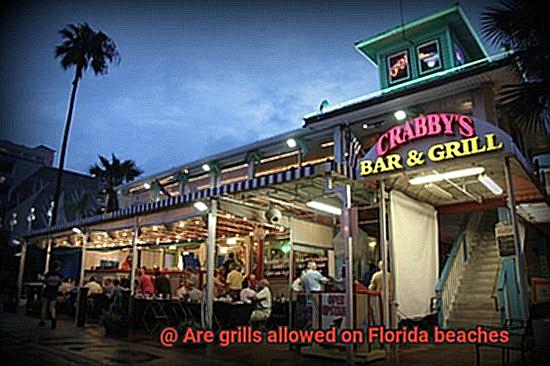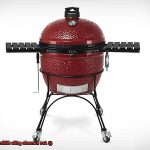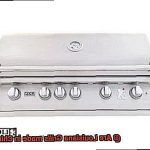Picture this: you’re at a Florida beach, toes buried in the warm sand, salty breeze blowing through your hair, and the refreshing ocean waters beckoning you to take a dip. But what’s a day at the beach without some delicious grilled burgers and hot dogs to munch on? Ah, but hold up – are grills even allowed on Florida beaches?
Well, it’s not exactly a yes or no answer. Depending on which beach you’re at, there may be designated areas where grilling is allowed. However, other beaches have stricter regulations in place to protect the environment and ensure visitors’ safety. And don’t forget about rules regarding the type of grill you can use, the materials you can burn, and whether or not you need a permit.
Navigating all these rules can be overwhelming. But fear not. We’ve got your back with this guide to help you grill up a storm on Florida beaches. We’ll go over everything from the basics of grilling on Florida beaches to specific restrictions that might apply. Plus, we’ll throw in some tips and tricks for making your beach barbecue an unforgettable experience.
So slather on that sunscreen and grab your spatula – it’s time to fire up those grills and make some memories.
Contents
Are Grills Allowed on Florida Beaches?
The answer is not straightforward as it depends on the beach’s specific regulations and location.
Most Florida beaches allow grilling, but there are certain rules and guidelines that must be strictly followed to ensure safety and compliance with local laws. For instance, many beaches require that grills be placed in designated areas only, away from any vegetation or other flammable materials. Some beaches may even have restrictions on the size of the grill or the type of fuel that can be used.
Before packing your grill, familiarize yourself with the specific regulations of the beach you plan to visit. You can typically find this information on the website of the local government or beach management agency. Additionally, practice caution when grilling on the beach and follow all safety guidelines, such as keeping a fire extinguisher nearby and properly disposing of coals and other materials.
Open fires are generally not allowed on Florida beaches, so charcoal grills might be prohibited. However, propane grills may be allowed as long as they are used safely and in accordance with local regulations.
When grilling, always keep your grill away from vegetation or other flammable materials, even if it’s propane-fueled. Some beaches may also have restrictions on the size of the grill or the type of fuel that can be used.
Lastly, clean up after grilling to avoid causing harm to other beachgoers. All trash and debris should be correctly disposed of in designated receptacles. Abandoning hot coals or other materials is a serious safety hazard to other beachgoers.
Rules and Regulations for Grilling on the Beach
Before you pack your grill, remember that there are rules and regulations to be followed when grilling on Florida beaches.
First things first, not all beaches allow grilling. It’s crucial to check with the local city or county government before lighting up. Assuming that your chosen beach does permit grilling, there are still some important regulations to keep in mind.
To begin with, your grill must be placed at least ten feet away from any beach vegetation, such as sea oats. You don’t want to risk damaging the delicate ecosystem or start a fire. Also, make sure not to block any public access points or walkways. Safety should always be a top priority.
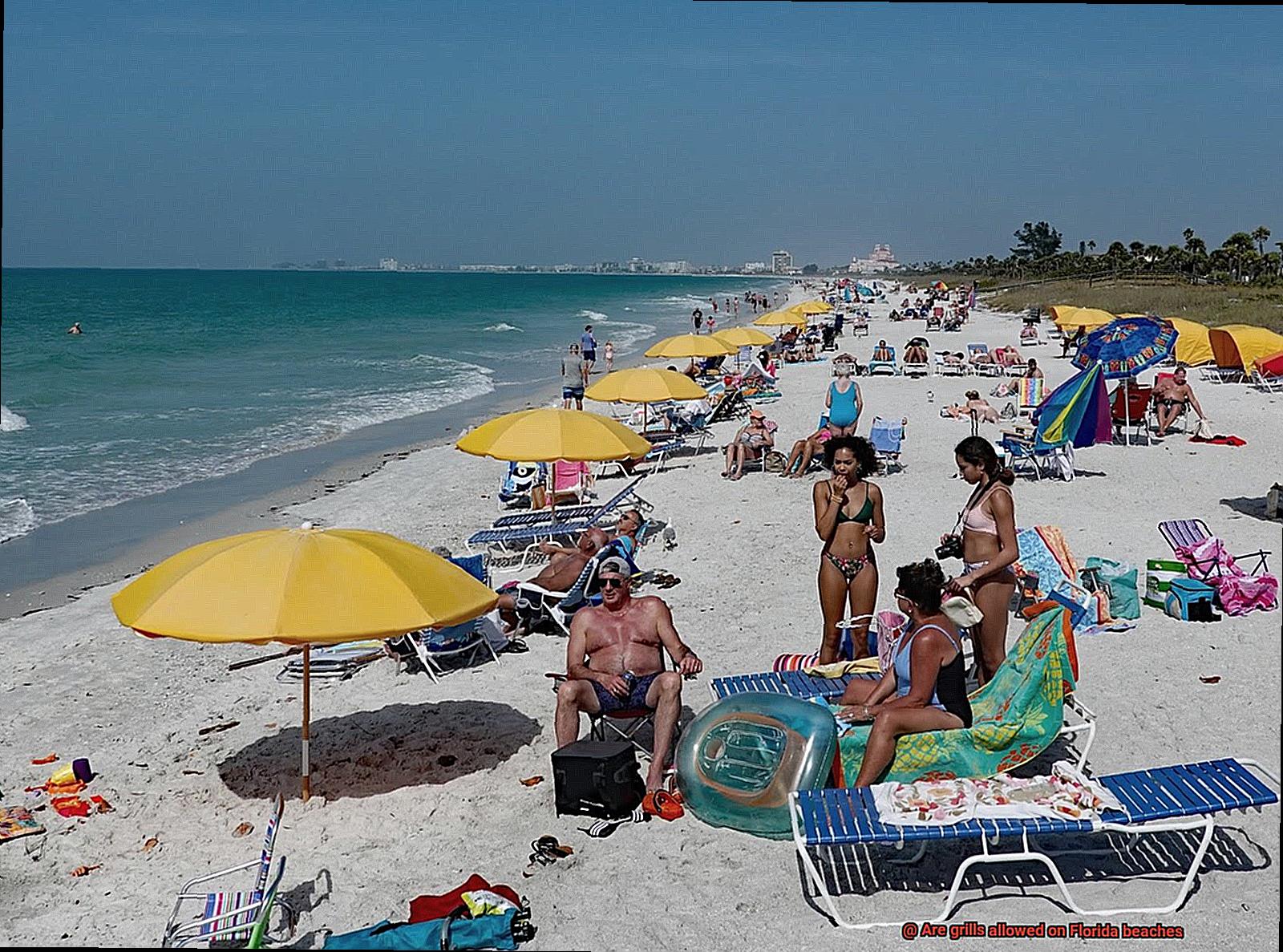
Your grill must be placed on a non-combustible surface, like sand or concrete, and should never be left unattended. Assign a designated grill watcher while enjoying water sports or other beach activities to ensure that the grill is always under watchful eyes.
Proper disposal of charcoal or ashes is another essential consideration. Always dispose of them in designated receptacles or take them with you when leaving the beach. This is critical for preventing fire hazards and protecting the environment.
Lastly, bear in mind that grilling on the beach may be restricted during dry seasons or high-risk fire situations. These restrictions may include all fires, including charcoal and gas grills. Therefore, it’s always advisable to check with local authorities before planning your beach grilling excursion.
Charcoal Grills vs Propane Grills
Florida beaches are the perfect destination for a beachside barbecue. However, before you fire up your grill, it’s essential to consider which type of grill to use: charcoal or propane.
As an expert on this topic, I can tell you that both charcoal and propane grills have their pros and cons. Let’s explore them further.
Charcoal grills are the traditional choice for outdoor grilling. They offer a classic smoky flavor that’s hard to match. However, lighting a charcoal grill can be challenging, and maintaining a consistent temperature takes practice. Plus, cleaning up the ash afterwards is a real pain in the beach bum.
Propane grills, on the other hand, are easy-peasy-lemon-squeezy to use. Just turn the knob and get instant heat. They also produce less smoke than charcoal grills, making them a better choice for crowded beach areas. However, they can be heavy and cumbersome to transport and require regular refilling or replacement.
When it comes to safety, it’s crucial to follow proper procedures. Before starting any beachside barbecue, check with local authorities for regulations on grilling. Many beaches have specific rules when it comes to using grills, including restrictions on the type of fuel allowed, grill size, and location. It’s also important to keep a safe distance from vegetation, assign a designated watcher, dispose of charcoal properly, and be aware of restrictions during dry seasons or high-risk fire situations.
Safety Tips for Grilling on the Beach
When the summer weather hits, there’s no better way to spend a day than with a beachside barbecue. However, grilling on the beach can be dangerous if proper safety measures are not taken. Here are five sub-sections that will help you understand the essential safety tips for grilling on the beach.
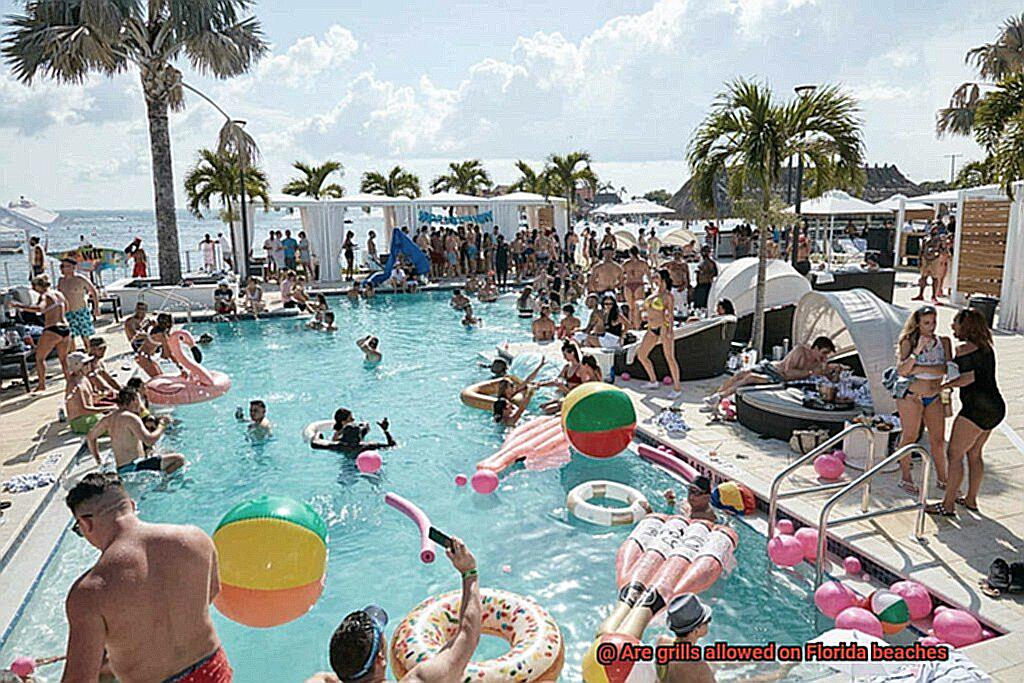
Check with Local Authorities
Before you start packing your grill and heading to the beach, check with local authorities to make sure grilling is allowed. Some beaches may have specific rules and regulations regarding grilling, so it’s best to be informed before you go. Once you’ve confirmed that grilling is allowed, choose a spot away from any flammable materials such as dry grass or driftwood.
Choose the Right Spot
When selecting a spot to set up your grill, make sure it’s away from any flammable materials such as dry grass or driftwood. It’s also important to keep your grill away from any beachgoers, especially children. Use a stable surface such as a concrete or metal stand to prevent any accidents caused by a tilting or falling grill.
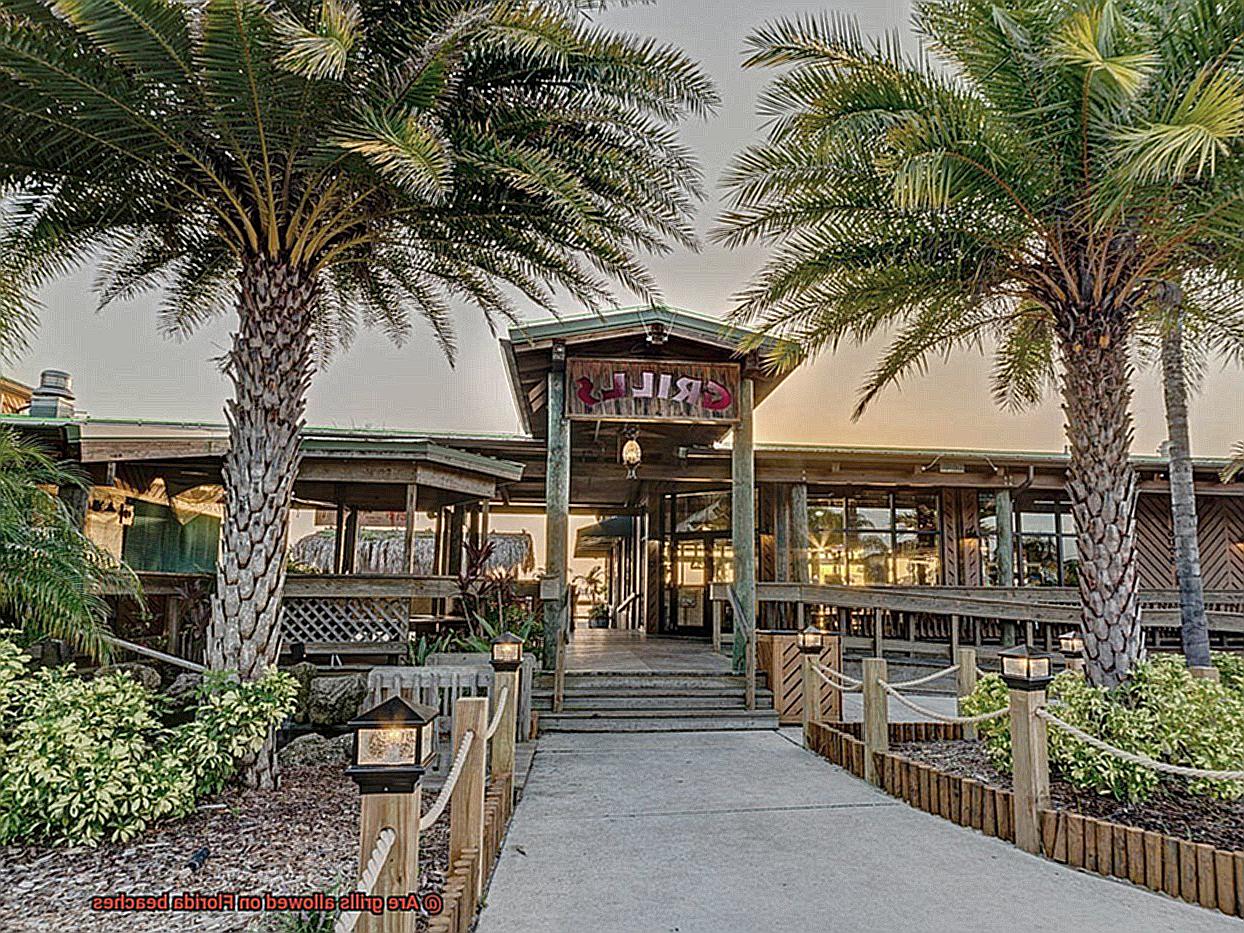
Keep a Fire Extinguisher Nearby
Accidents can happen even if you take all the necessary precautions. It’s important to have a fire extinguisher nearby just in case. Make sure that everyone in your group knows where the fire extinguisher is located and how to use it.
Never Leave Your Grill Unattended
It’s important to never leave your grill unattended, even for a few minutes. This can lead to accidents caused by wind or other factors that can cause your grill to tip over or start a fire. Use a portable grill that is designed for outdoor use and has a lid to control flames and prevent flare-ups.
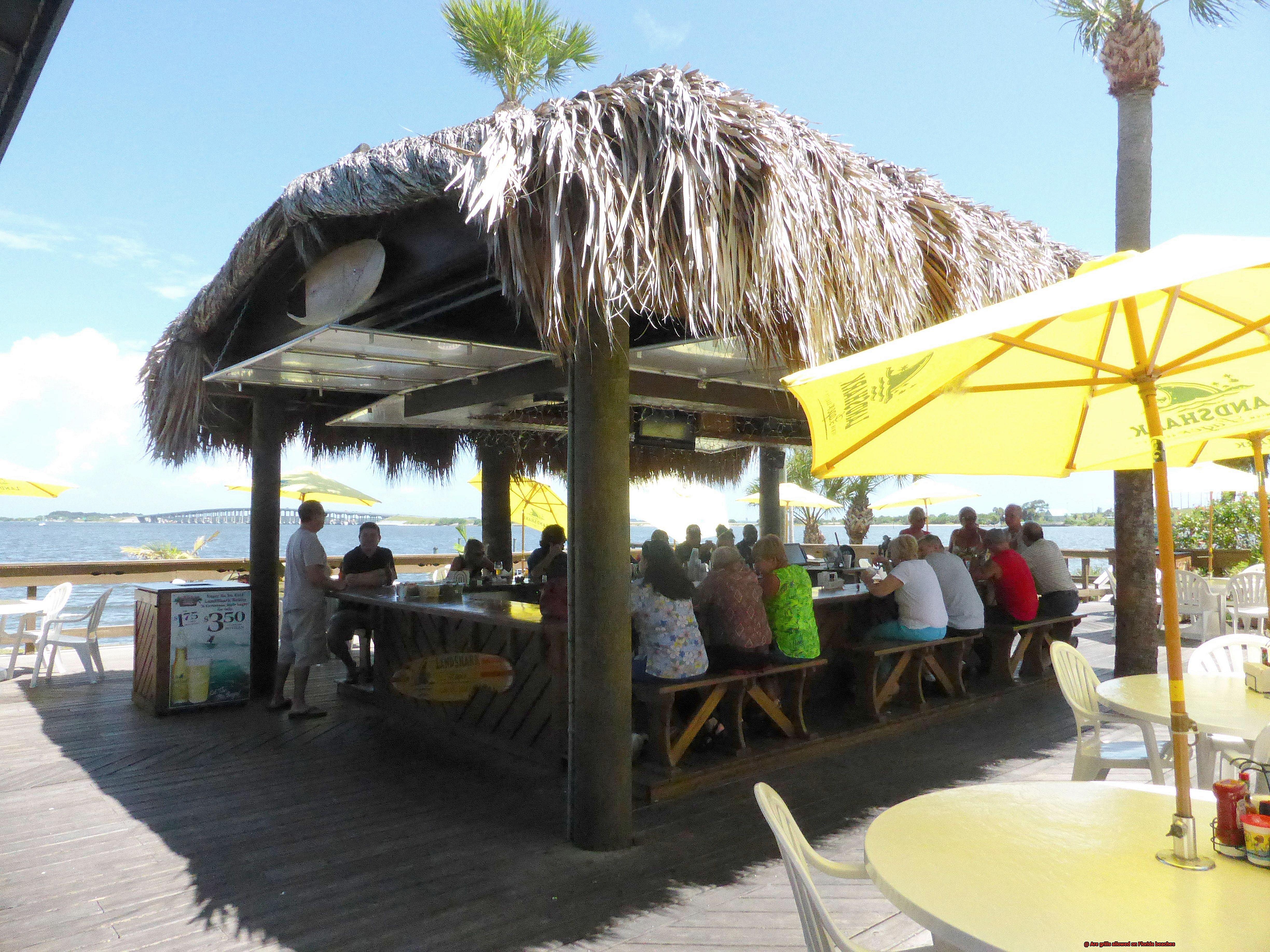
Food Safety
In addition to equipment and weather concerns, don’t forget about food safety. Keep raw meat separate from other foods and make sure it is cooked thoroughly before serving. Use separate utensils for raw and cooked meat to prevent cross-contamination and always wash your hands before handling food.
Clean Up After Grilling On The Beach
With summer in full swing, many of us are heading to the beach to enjoy some sun, sand, and a good old-fashioned BBQ. However, it’s crucial to keep in mind that grilling on the beach comes with the responsibility of cleaning up after ourselves.
Leaving behind trash and litter not only ruins the beauty of the beach but also harms the environment and marine life. Therefore, it’s essential to take the necessary steps to clean up after grilling on the beach.
Let’s start with the basics. Make sure to bring garbage bags and recycling bins with you. This will help you dispose of waste properly and keep the beach clean. Do not bury your trash in the sand or leave it lying around as it can cause pollution and harm marine life. Instead, use the designated trash cans provided by the beach authorities.
Next up, cleaning your grill after use is just as important as cooking on it. Use a wire brush to remove any food debris and ash from the grates. Dispose of these materials in a garbage bag or recycling bin. It’s also recommended to wipe down the grill with a damp cloth or paper towel to remove any remaining residue.
Last but not least, be careful with those hot coals and embers. Do not dump them on the beach or in the water as they can cause fires and damage marine life. Instead, let them cool down completely before disposing of them in a designated coal bin or taking them with you in a metal container.
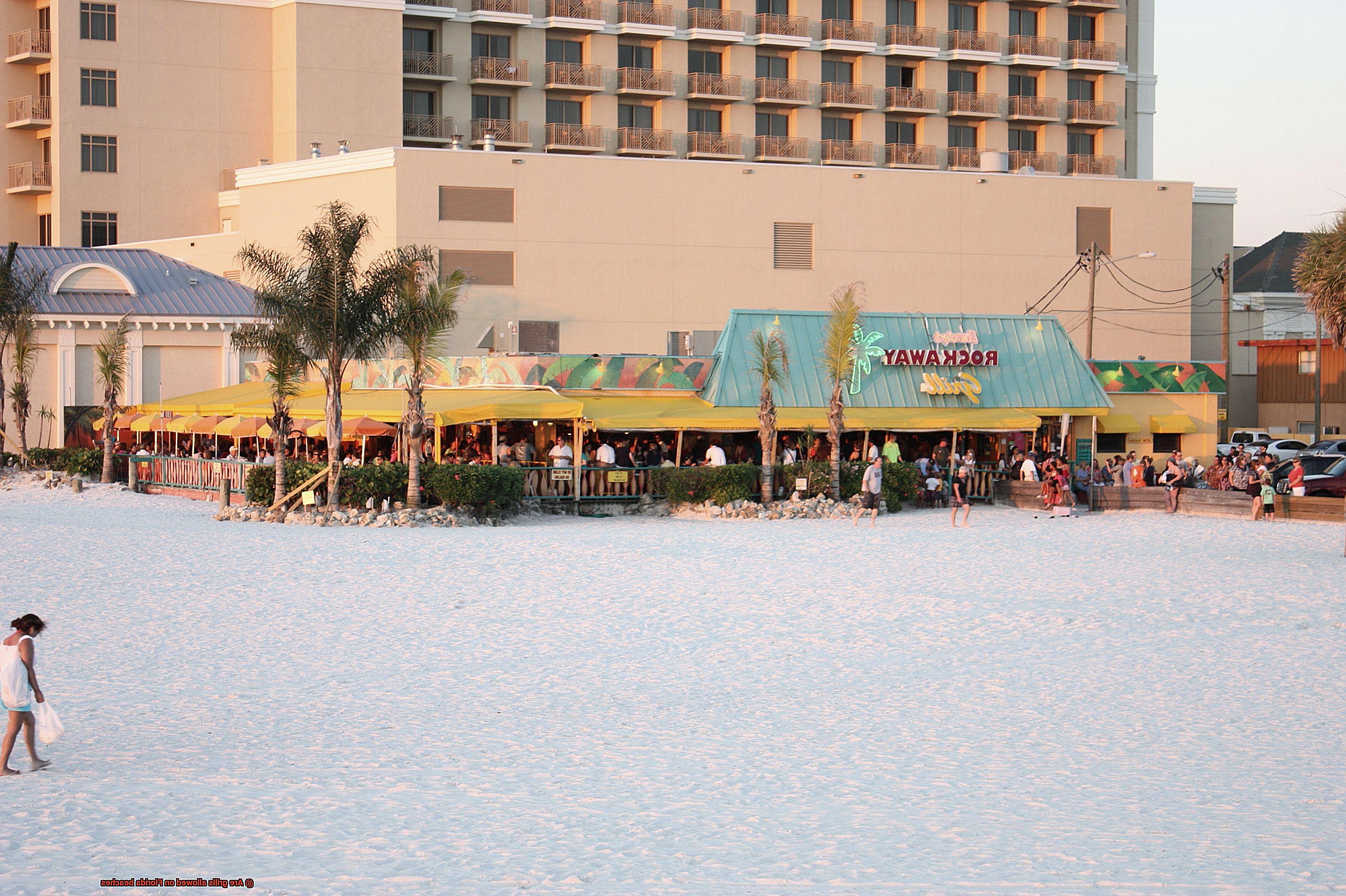
To summarize, here are some key takeaways for cleaning up after grilling on the beach:
- Bring garbage bags and recycling bins
- Use designated trash cans provided by beach authorities
- Clean your grill thoroughly after use
- Dispose of hot coals and embers properly
Areas Where Grilling Is Prohibited
Picture this: You’re at the beach, and the sun is shining bright. You’ve got your cooler filled with drinks, your sunscreen is on, and you’re ready to fire up the grill. But hold on, not all areas of the beach are suitable for grilling. In fact, some places prohibit grilling altogether. So why is that?
One of the primary reasons why grilling is prohibited in certain areas is to prevent fires. During dry seasons, there’s a high risk of wildfires, and an uncontrolled fire can quickly spread if not contained. To ensure public safety, many beaches have designated grilling areas equipped with proper safety measures such as fire extinguishers, sand buckets, and water hoses.
Another reason why grilling is prohibited in certain areas is to protect the environment. Improper disposal of charcoal and other waste can result in littering and pollution, which can have a negative impact on marine life and the ecosystem. Therefore, it’s crucial to follow strict rules about disposing of trash and other waste.
Finally, overcrowding on the beach can lead to accidents and injuries if grills are placed too close to each other or to other beachgoers. Additionally, smoke from a grill can cause discomfort or irritation to others who may be trying to enjoy a peaceful day at the beach. This is why some areas prohibit grilling altogether.
Benefits of Grilling On The Beach
Grilling on the beach is a popular activity among Floridians and tourists alike due to its numerous benefits that make it a worthwhile experience.
First and foremost, grilling on the beach allows you to soak up the stunning scenery that Florida beaches have to offer. From crystal clear waters to breathtaking sunsets, grilling on the beach gives you the chance to take in the beauty of nature while cooking up some delicious food. It’s a great opportunity to relax, unwind, and spend quality time with loved ones.
Another benefit of grilling on the beach is the fresh air. The salty ocean breeze is invigorating and can enhance the flavors of your food as well. Plus, spending time outside in the fresh air and sunshine can be beneficial for your overall health and wellbeing.
One of the most exciting aspects of grilling on the beach is trying out new recipes and cooking styles. With limited equipment and space, you’ll have to get creative with your cooking methods, leading to discovering new flavor combinations and techniques that you may not have tried before. Whether it’s experimenting with different marinades or whipping up some grilled seafood, there are endless possibilities for culinary exploration.
Not only is grilling on the beach a fun way to cook, but it’s also a cost-effective option for enjoying a meal. Instead of dining out at an expensive restaurant or buying pre-made meals, you can bring your own food and cook it right on the beach. This allows you to save money while still indulging in a delicious meal with friends and family.
To ensure a safe and enjoyable experience, it’s important to follow designated grilling areas equipped with proper safety measures. This will help protect marine life and other visitors while keeping the beach clean for everyone to enjoy.
How to Check Local Regulations
Before you start setting up your barbecue, it’s essential to check local regulations to avoid any legal issues or fines. Here are some tips for checking local regulations when grilling on Florida beaches:
Check the City or County Website
The first step is to go to the website of the city or county that oversees the beach you plan to grill on. Look for a section on beach rules and regulations, which should provide information about whether grilling is allowed and any specific guidelines you need to follow.
Contact Local Government Office
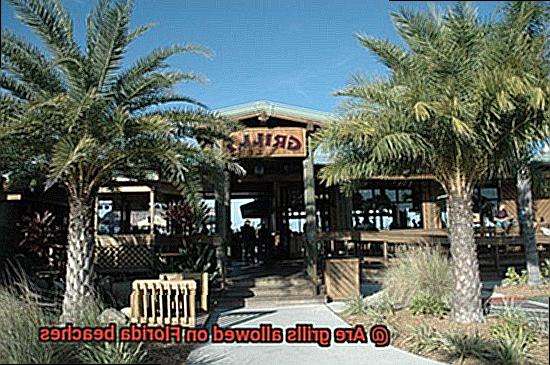
If you can’t find the information online, contact the local government office or beach patrol for more information. They are likely to provide you with the most up-to-date regulations regarding grilling on the beach.
Look for Permits
Some beaches may require a permit for grilling. Make sure to check if this is necessary and obtain any necessary permits before starting your barbecue.
Follow Safe Grilling Habits
In addition to local regulations, it’s crucial to practice safe grilling habits on the beach. Bring a fire extinguisher, keep your grill away from any flammable materials, and dispose of your coals properly.
State Park Regulations
If you’re planning on grilling at a state park beach, visit the Florida State Parks website for information on their rules and regulations. Many state parks have designated areas for grilling or may require a permit for beach barbecues.
Conclusion
In conclusion, grilling on Florida beaches is a fun and enjoyable activity that can be done safely as long as you follow the guidelines and regulations. It’s always important to check with local authorities before starting your beachside barbecue to ensure that you are not breaking any rules.
Some beaches have designated grilling areas that come equipped with safety measures such as fire extinguishers to prevent accidents and fires. When choosing between charcoal or propane grills, there are pros and cons to consider. Charcoal grills offer a classic smoky flavor, but they can be challenging to light up and maintain consistent temperature. Propane grills, on the other hand, are easy to use but require regular refilling or replacement.
Grilling on the beach offers numerous benefits such as enjoying the stunning scenery, fresh air, trying out new recipes and cooking styles while being cost-effective. However, it’s crucial to clean up after yourself by disposing of waste properly and being mindful of hot coals or embers.
To avoid any legal issues or fines, make sure you check local regulations before starting your barbecue by visiting the city or county website or contacting local government offices.

